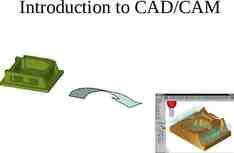Change in student assessment ongoing achievement record
18 Slides621.88 KB

Change in student assessment ongoing achievement record For undergraduate nursing students to be introduced August 2016 Feb Cohort Sept 2016 All Fields all years [email protected]

Overview The Changes Mentors will be assessing the domains rather than individual competencies. Each Doman will be assessed in all placements for the expected level of programme 3 forms of evidence for each domain will be required A percentage grade will be awarded for each placement/year Students Pebble Pad (evidence store) will contain sections for each domain

Assessment of 4 domains in line with NMC standards for competence for pre-registration nurse education Professional values Communication and interpersonal skills Nursing practice and decision-making Leadership, management and team working All domains will be assessed in each placement

Assessment of Domains A minimum of 3 forms of evidence are required for each domain; one must be Direct Observation, one Reflection (with references and related to a third form of evidence). Direct Observation (DO) Questioning, oral or written (Q) Reports/Statements from Others (RO/SO) Simulation (S) Evidence of Products of your Work (EW) Reflection (R) Service User Report (SU) Wider Patient Engagement Activity (WP)

Grading of Practice The mentor will indicate the level of achievement the student has met for each domain. The level of achievement awarded, from 0 to 100%, should reflect the skills, knowledge and values pertinent to the stage of the student’s programme and the student should demonstrate these both in the practice area and with the evidence collated in their e-portfolio. Only grades identified in the banding should be used (e.g. 52% or 55% or 58%). A minimum grade of 40% must be gained for each domain for a pass to be achieved. If the student is given a score of less than 40% (referral grade) for any domain then an Action Plan will be negotiated between the student, mentor with the personal tutor/Placement Lead support and guidance on how to develop this domain further for resubmission. The student may work on any referred domains during subsequent practice placement. If the student does not achieve in the final placement, they will be required to undertake further placement time following the award board any resubmitted domains will be capped at a grade of 40% for BSc (Hons) level. Under University Regulations the student is only allowed two summative attempts at practice.

Grading Tool . Level of performance Grade Guidance for grading Frequently fails to meet expectations in performance Sometimes meets expectations in performance. Meets expectations in performance Sometimes exceeds expectations in performance Frequently exceeds expectations in performance Sometimes excellent/ outstanding performance Consistently outstanding performance Clear failure To achieve a pass Failure to achieve a pass Satisfactory pass Good pass Very good pass Excellent pass Outstanding Pass 0 – 29% 32/35/38% 42/45/48% 52/55/58% 62/65/68 72/76/80/84% 86/90/95/100% Limited and inappropriate links between theory and practice. Unsafe or ineffective practice demonstrated Poor understanding of practice issues. Evidence of unsafe practice Safe practice demonstrated with some reference to evidence-based underpinning Consistently safe practice demonstrated with some reference to evidence-based rationale Safe and evidencebased practice consistently demonstrated. Incorporates evidence of consistently safe and best standards of practice Incorporates evidence of consistently safe and highest standards of practice. Outstanding comprehension of contemporary issues. Excellent application of recent research to practice.

Domain Assessment Guidance

Year 1 Domain 1 All fields Domain 1: Professional Values Indicative guidance: Practice honestly and with integrity, applying the principles of The Code: (2015) Demonstrate an understanding of how to work within legal and professional frameworks and local policies to safeguard and protect people, particularly children, young people, and vulnerable adults. Work within the laws governing health and safety at work. Demonstrates safe manual handling techniques Display a professional image in their behaviour and appearance, showing respect for diversity and individual preferences. This includes compliance with uniform policy. Act in a manner that is attentive, kind, sensitive, compassionate and non-discriminatory, that values diversity and acts within professional boundaries and demonstrates respect for people’s rights and choices. Understand the principles of confidentiality and data protection. Treats information as confidential, except where sharing is required to safeguard and protect people. Maintain a portfolio demonstrating personal and professional development Please complete the relevant sections of the mandatory development plan on the following page

Mental Health year 2 Domain 2 Domain 2: Communication and Interpersonal Skills Indicative guidance: Use a range of interpersonal skills, including verbal, non-verbal and written and engage with service users to elicit, discuss and record information to develop a shared understanding of their needs. Use therapeutic principles and effective communication to engage, maintain and, where appropriate, disengage from professional caring relationships, and always respect professional boundaries. Recognise opportunities to encourage health-promoting behaviour through education, role modelling, information sharing and effective communication. Maintain accurate, clear and complete records, including the use of electronic formats where appropriate, using appropriate and plain language When relevant to the placement the student must also: Identify and complete wider patient activity and patient report evidence

Child Health Year 3 Domain 3 Domain 3: Nursing Practice and Decision Making Indicative Guidance Practice independently under indirect supervision, recognising the limits of their competence and knowledge seeking advice where necessary. Utilise up-to-date knowledge and evidence to assess, plan, deliver and evaluate care. Be able to make accurate assessments and start appropriate and timely management of those who are acutely ill, at risk of clinical deterioration, or require emergency care Carry out comprehensive, systematic nursing care that takes account of relevant physical, social, cultural, psychological, spiritual, genetic and environmental factors, in partnership with service users and others through interaction, observation and measurement. Demonstrate the ability to make a comprehensive assessment of need in relation to fluid nutritional requirements. Be able to safely administer enteral feeds and maintain equipment in accordance with local policy Under supervision, monitor, assess and document the administration of intravenous fluid. Demonstrate competence in the ability to administer and monitor medication. Be able to apply the principles of asepsis when assisting or carrying out procedures. Practise safely within local and national guidelines and policies. Take every opportunity to encourage health-promoting behaviour through education, role modelling and effective communication. Demonstrate how to report concerns when local and national guidelines and policies are not followed. Recognises the early signs of illness in people of all ages. Demonstrates understanding public health principles and priorities in practice. Be proactive in enabling people to make choices about their healthcare needs. Recognise when an individual is at risk and work, under supervision, within local policies and guidelines to protect them from abuse. Demonstrate reflection on care provided to improve their clinical decision-making. When relevant the student must also: Identify and complete wider patient activity and patient report evidence

Adult Year 3 Domain 4 Domain 4: Leadership, Management and Team Working Indicative Guidance Identify priorities and manage time and resources effectively to ensure the quality of care delivered to groups of patients Be able to demonstrate the ability to facilitate learning in others Be able to work independently as well as in a team. Be able to lead, coordinate and delegate care safely Be able to work effectively across professional and agency boundaries Promote continuity when care is transferred to another service or person Work in partnership, with both service users and other healthcare professionals and agencies, to manage risk, promote health, wellbeing and choice. Maintain a portfolio demonstrating personal and professional development When relevant the student must also: Identify and complete wider patient activity and patient report evidence

Formative assessment Agreed Date for Formative assessment: Student’s Self-assessment Score 0 – 100% Student Comments Score 0 – 100% Mentor Comments Professional Values Communication and Interpersonal Skills Nursing Practice and Decision Making Leadership, Management and Team Working Mentor’s Assessment Professional Values Communication and Interpersonal Skills Nursing Practice and Decision Making Leadership, Management and Team Working

Action Plan Please record any actions/plans that need to be taken in response to improvements required following the formative assessment. Date Issue/Concern Action Required Re-evaluation Date

Summative Assessment Placement One Mentor to indicate forms of evidence and grade student’s level of competence 0 -100% (see assessment tool). Assessment Evidence Forms of Evidence Evidence Evidence Grade Domain 1: Nursing Practice and Decision Making Evidence Evidence Evidence Evidence Evidence Evidence Evidence Evidence Evidence Domain 2: Professional Values Domain 3: Communication and Interpersonal Skills Domain 4: Leadership, Management and Team Working Student Declaration: I (name) hereby confirm that I have uploaded to my e-portfolio the relevant evidence that has been presented to my mentor for each domain. PASS / REFER (Please circle, if refer state which domain) Personal Tutor signature: Date: I confirm that I have uploaded Service User reports to my e-portfolio and they have been presented to my mentor Student signature: Mentor Name: Mentor Signature: Mentor Qualification: Total percentage for Placement (Add scores and divide by 4) Date Night Duty/Twilight shifts worked:

Year 3 Personal Tutor Summary First Attempt All Domains Achieved Yes/No (delete as appropriate) If no, state Domains to be reassessed Overall Grade European Union Directives Completed Yes / No Student progression SOM confirms eligibility for registration Yes / No If no, state reasons Personal Tutor signature Date: Personal Tutor Comments (including record of Wider Patient Engagement (WPE) activity)

Action Plan Please record any actions/plans that need to be taken forward following the summative assessment. Date Issue/Concern Action Required Re-evaluation Date

Referrals – personal tutors are always involved in the process. Placement Referral Normally student s have 2 attempts at practice Re-assessment can be undertaken in following placements or if at end of year in an additional period following the Award Board. Any referred domains Re-assessed marks Final placement referral Reassessment will be classed as a second and final attempt unless supported with valid extenuating circumstances The mark awarded for the re-assessed domains lead to the practice element being capped at 40% Final placement referral will be subject to decision at the Award Assessment Board and further practice time will need to be undertaken following the Award Board

More information University Placement Support Lead Personal Tutor Programme Lead Pebble-Pad Programme Administration






